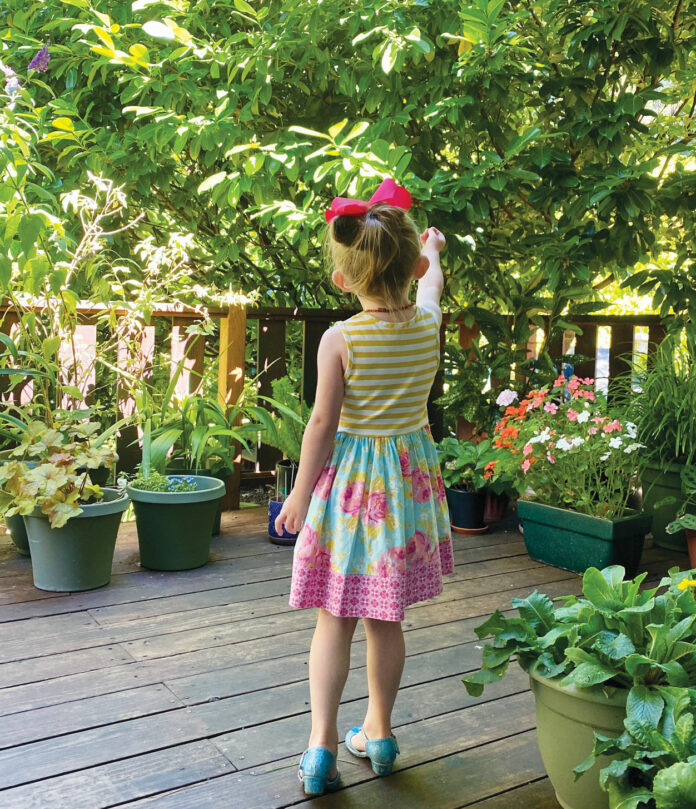My 4-year-old neighbor, Grace, helps me in my garden. She tells me her favorite activity is transplanting. A pro now at loosening roots, she adds just the right amount of soil and waters the new plant in to settle the soil. Watering from the watering can is her favorite part.
She knows the names of many of the birds that frequent my suet feeder, including the chickadee and junco. And she’s quite the expert at putting peanuts on the railing for the jays, then sitting quietly to watch them find the treat. The swallowtails visit the butterfly bush regularly and she knows them by name, too. She’s a naturalist in the making.
Today we identified the ripe seeds on annual cosmos and noted how the zinnia flowers that we started from seed earlier in the summer are just about the open. The swallowtail butterflies will love them. Also on the agenda was reviewing the wildlife camera footage to see what animals visited the garden during the night.
School has begun for many of the students. And now would be the perfect time to encourage your child to grow something, keeping track of the progress by pictures and notes. Maybe what they learn could even be used for a school project.
Finding things to do in the garden is easy. You probably already have some edible flowers in your garden. Tuberous begonia petals taste like lemon. Calendulas are spicy as are carnations and marigolds. Dianthus are clove-flavored, nasturtiums give a hint of horseradish and violas, pansies, hollyhock, squash blossoms and johnny-jump-ups taste like mild lettuce. You can also freeze flowers like violas, fuchsias, geranium, stock and thyme in ice cubes.
Besides flowers, fragrant foliage plants like lemon basil, lemon verbena, lime thyme, orange mint and other herbs engage the senses and can be included in a kid’s garden.
Pet-able plants are a sure hit with kids. Usually we tell them, “Don’t touch,” so to actually have someone encourage this is a rare treat. If your own garden doesn’t have plants that look and feel so soft that you can’t resist petting them, consider adding lamb’s ears, which are soft and furry, artemisia “Powis Castle” or fountain grass.
In a garden, children can breathe fresh air, discover bugs and watch things grow. And, of course, a garden offers kids and everyone else fresh, tasty homegrown food. What better place for kids to play than in a place where they can use their hands and connect with the earth?
Where else can they make a plan for a plot of land and learn the lessons of hope and wonder, suspense and patience and even success and failure? In a garden you can have conversations about life and even death in a way that doesn’t seem so sad.
Teach children about beneficial insects like butterflies and ladybugs. Good bugs help plants by pollinating flowers or preying on insect pests. Make your garden a more inviting place for these helpful insects by planting lots of flowers and herbs to attract them.
Flowers with umbrella shaped clusters of small flowers such as cosmos, zinnia, black-eyed susan and yarrow are favorites of butterflies. Ladybugs like a pest-free garden and will patrol your plants looking for any tiny insects and their eggs.
Whatever you grow, include the kids in the garden. It’s a free and fun activity.
Jan Nelson, a landscape designer and California-certified nursery professional, will answer questions about gardening in the Santa Cruz Mountains. Email her at ja******@*ol.com, or visit jannelsonlandscapedesign.com.












